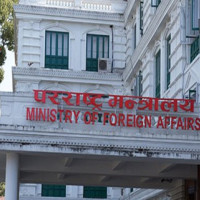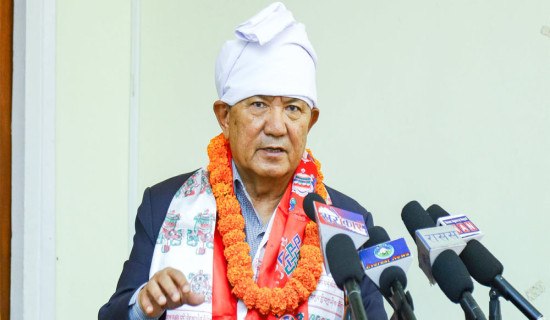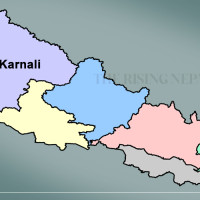- Thursday, 21 August 2025
President returns Constitutional Council Bill for review
By A Staff Reporter,Kathmandu, July 25: President Ramchandra Paudel has returned the Constitutional Council (Work, Duties, Powers and Procedures) Amendment Bill, passed by both Houses of Parliament, to the House of Representatives for further scrutiny.
The Office of the President confirmed this in a statement issued on Thursday evening.
The Bill, which originated in the House of Representatives, was passed by the House of Representatives and the National Assembly and certified by Speaker Dev Raj Ghimire before sending it to the President for authentication.
"President Ramchandra Paudel has, in accordance with Article 113, Clause (3) of the Constitution of Nepal, sent back to the House of Representatives the Bill, which had been submitted for authentication under Article 113, Clause (1) of the Constitution after being passed by both Houses of the Federal Parliament, with a message for reconsideration. The Bill in question was introduced to amend the Constitutional Council (Functions, Duties, Powers and Procedures) Act, 2066. The reason for returning the Bill is that the President believes the Bill needs further in-depth study, discussion, deliberation, evaluation, and analysis by the Federal Parliament," read the statement issued by Shailaja Regmi Bhattarai, Spokesperson for the Office of the President.
"This Bill, therefore, has been returned to the House of Representatives with the aforementioned message from the President."
Earlier on Thursday, the President’s Press Advisor, Kiran Pokharel, said that the move was taken under Article 113(3) of the Constitution, as the proposed amendment did not match the spirit of the Constitution and democratic values, norms and global practices.
The President is granting Parliament a final opportunity to revisit the text, Pokharel added.
The Bill, a key legislative framework, outlines the structure, authority, and operating procedures of the Constitutional Council, an important body tasked with recommending appointments to the constitutional institutions such as the Commission for the Investigation of Abuse of Authority, the Election Commission, and the Public Service Commission.
The Council is composed of six members, including the Prime Minister as Chairperson, the Chief Justice, the Speaker of the House of Representatives, the Chairperson of the National Assembly, the Leader of the main Opposition Party, and the Deputy Speaker of the House (as a non-voting member).
The Act was introduced to ensure transparency, legality, and fairness in the appointment process. As per the original provisions of the Act, a minimum of five members were required to be present to convene a meeting, and decisions were taken by majority vote, with confidentiality maintained throughout the deliberations.
However, the amendment bill passed by both Houses has stirred widespread controversy. The bill, submitted to the President for verification on July 16, has reduced the quorum requirement to just two members, provided one of them is the Prime Minister. The President is said to be concerned about the new provision that allows only two out of the six members of the council to recommend appointments, and he consulted experts before sending the Bill to the House for reconsideration.
The proposed amendment has been strongly criticised by opposition parties, legal experts, and civil society for enabling unilateral decision-making and undermining the checks and balances enshrined in the constitution.

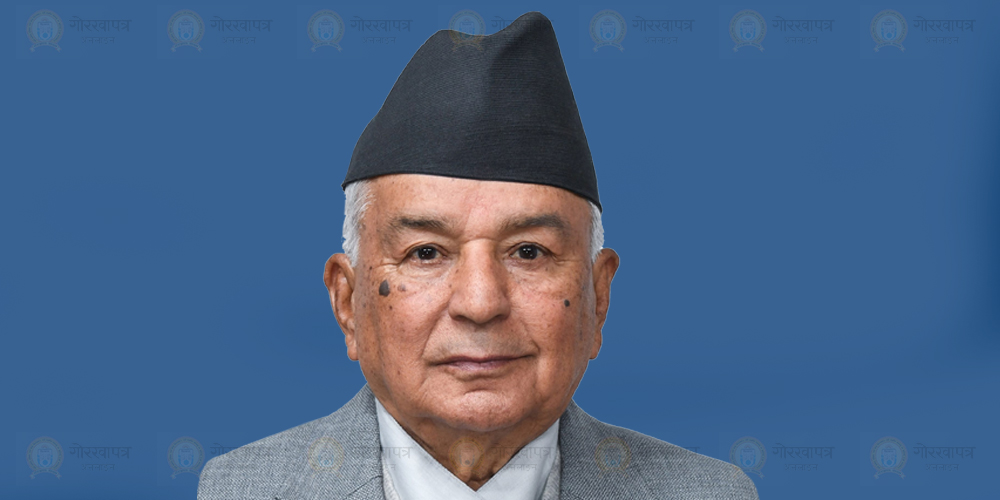

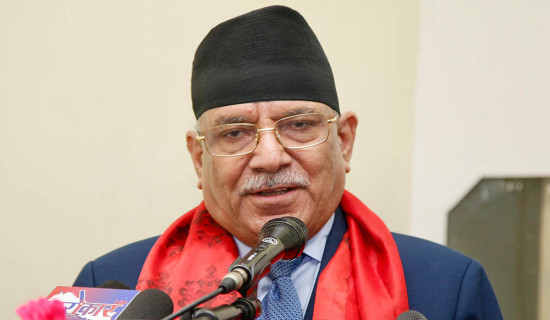
-square-thumb.jpg)
